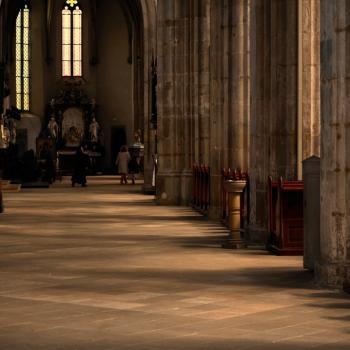All Nations focuses on vital worship, great praise music, a strong message, and programs beyond just services and fellowship. "At every service, I and the whole congregation cry. We feel God's love. We feel grateful to God to find a community. Immigrant people have the American dream, so they come to the U.S. But actual life is so boring. They just do their small businesses, work so many hours, and lose their sense of meaning.
"I put to them that a church without vision is only a theater. Worship is our resource for power and energy. Inner healing helps us restore and recover the image of God. Discipleship programs, like Quiet Time or Exploring the Bible, prepare us to think about why God gave us the name of All Nations," Yoo says.
He inspires the first generation to reinterpret their culture-gap experiences as preparing them to be a bridge to other people. He challenges the second generation to use their language skills to witness. The church's many outreaches include All Nations Seminary in Juarez, Mexico, an outreach to pastoral candidates from several kinds of churches. Yoo envisions that All Nations' English congregation, called The Journey, "will minister not just to second-generation Korean Americans but to all our neighbors." Already about one-eighth of English-speaking worshipers are Caucasian.
Pastor Charles Kim says that postmodern experience is more important than Korean culture in shaping worship at The Journey. That's partly because they want to be multi-ethnic and also because members, most of them in their 20s and 30s, left their parents' churches.
"There's nothing wrong with first generation worship habits, but we are attempting to do whatever we can to help the emerging generation think, feel, and act outside the box of Korean-Americanness," Kim says. "Typically Korean people attend Korean churches, hire Korean pastors, watch Korean TV, listen to Korean radio. They're never given a chance to explore beyond their heritage. I live in America now. Therefore my neighbors are not just Korean people or people in Korea. They include many ethnic groups."
Reaching any unchurched people or second-generation Korean Americans, he adds, requires breaking through the "'been there, done that' attitude to provide a new identity in Christ."
This article was first published by the Calvin Institute of Christian Worship (http://www.calvin.edu/worship/) under the title, "Korean-American Churches: From Generation to Generation."
Joan Huyser-Honig ([email protected]) is a partner in Huyser-Honig Creative Services. She is a member of Church of the Servant Christian Reformed Church, Grand Rapids, Michigan.




